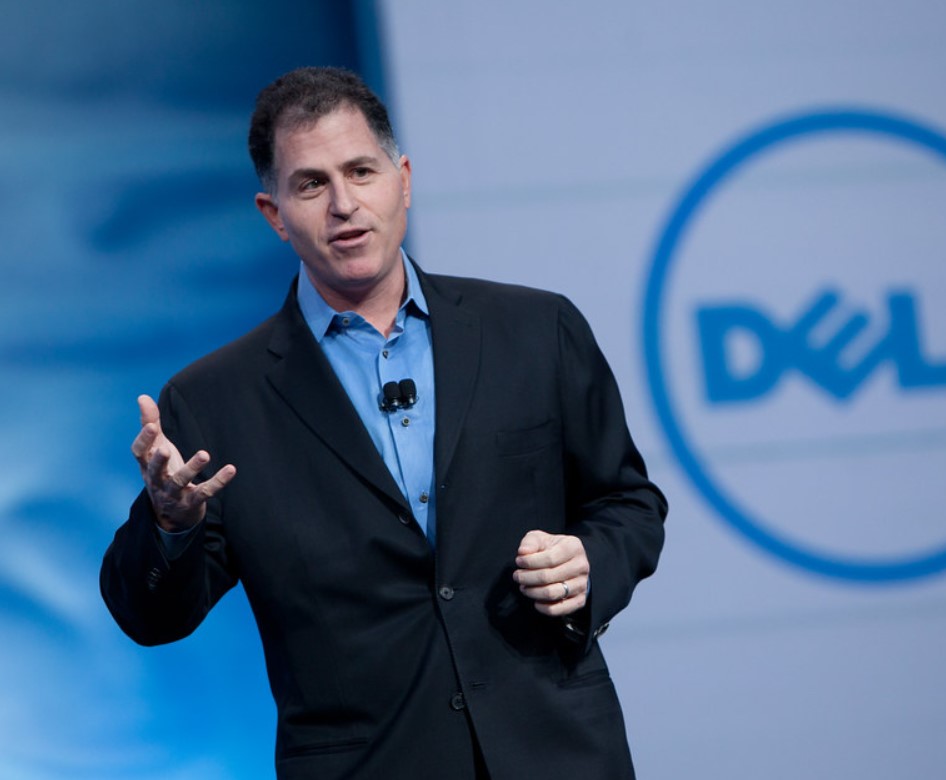The humble beginnings of Dell Technologies
Dell Technologies, one of the world’s largest PC makers and IT solutions providers, has a remarkable origin story. The company was founded by Michael Dell, who started selling computer upgrade kits to his fellow students from his dorm room at the University of Texas in 1983. He was only 19 years old at the time, and had a passion for computers and technology since he was 15.
Michael Dell had a vision of creating a direct-to-customer model, where he could offer customized and affordable computers without the middlemen or the retailers. He also had a knack for finding and exploiting market opportunities, such as targeting the growing demand for personal computers among individuals and businesses.
With just $1,000 in capital, and a team of three people with screwdrivers, Michael Dell launched his company, which he initially named PC’s Limited. He soon dropped out of college to focus on his business, which grew rapidly and generated $6 million in sales in its first year.

The growth and challenges of Dell Technologies
Michael Dell renamed his company as Dell Computer Corporation in 1987, and expanded his product line to include laptops, servers, and storage devices. He also took his company public in 1988, raising $30 million in its initial public offering. By 1992, Dell became the youngest CEO ever to make the Fortune 500 list, and by 1999, Dell became the world’s largest PC maker, surpassing Compaq and IBM.
However, Dell also faced several challenges and setbacks in its journey, such as the rise of competitors like Apple, HP, and Lenovo, the decline of the PC market, the emergence of new technologies like smartphones and tablets, and the impact of the global financial crisis. Dell also had to deal with allegations of poor customer service, low-quality products, and accounting fraud.
To overcome these difficulties, Michael Dell took back the CEO role in 2007, after stepping down in 2004, and initiated a series of strategic moves, such as diversifying into software, cloud, and data center services, acquiring companies like EMC, VMware, and SecureWorks, and taking the company private in 2013, in a $24.9 billion deal. In 2016, Dell rebranded itself as Dell Technologies, and in 2018, it returned to the public market, after a complex financial transaction.
The secrets and advice of Michael Dell
Michael Dell, who is now the founder, chairman, and CEO of Dell Technologies, has shared his secrets and advice for aspiring entrepreneurs and innovators, based on his own experience and success. Some of his key insights are:
- Embrace risk and failure. Michael Dell says that risk-taking is essential for innovation and growth, and that failure is inevitable and instructive. He says, “You have to embrace risk, and you have to accept failure. If you’re not failing enough, you’re probably not trying hard enough.”
- Be unique and differentiated. Michael Dell says that to make it big, one has to come up with something that nobody else is doing, and that offers a clear value proposition to the customers. He says, “If you want to really make it big, you better come up with something unique. It better be differentiated that nobody else is doing.”
- Trust your instincts and don’t ask for opinions. Michael Dell says that one has to trust their own vision and judgment, and not rely on the feedback or approval of others. He says, “If you go and ask people if it’s a good idea, most of them will tell you ‘no’. So don’t go ask.”
- Keep learning and improving. Michael Dell says that one has to keep up with the changing trends and technologies, and constantly update their skills and knowledge. He also says that one has to seek and implement continuous improvement in their products and processes, and eliminate waste and inefficiency.
- Build a great team and culture. Michael Dell says that one has to surround themselves with talented and passionate people, who share the same vision and values, and who can collaborate and communicate effectively. He also says that one has to create a culture of excellence, innovation, and customer satisfaction.
